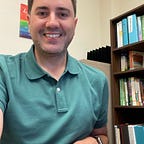Refine Scientific Literature Searches using ChatGPT
While being acutely aware of the potential harm involved in using Artificial Intelligence (AI), I can’t help but be intrigued by the possibilities. After listening to academics and following ChatGPT fans on social media, it is no secret that ChatGPT is not a good option for finding the best peer-reviewed academic literature. ChatGPT will “hallucinate” articles that don’t even exist. This AI weakness is a real cause for alarm. This weakness has the potential to perpetuate misinformation.
Through an ongoing desire to use the power of language models like ChatGPT to assist with literature searches, I discovered that ChatGPT is quite precise in helping you design search strategies and outputting database syntax that can provide robust and tightly replicable literature searches.
This newly discovered AI ability has many implications. For one, these syntax searches (specific to the desired database) typically require the assistance of a medical librarian or other library research resources. With ongoing shortages and lack of resources in academic settings across the globe, delegating search strategies and database-specific syntax output to AI can save time, increase equity and improve evidence-based practice by closing the research-to-practice gap often encountered in healthcare settings.
Let’s look at the strategy:
In this example, I’m using ChatGPT-4. The open-access version (ChatGPT-3.5 at the time of this writing) is a little less precise, but it can still work well with some patience and prompting. I find ChatGPT-4 much more accurate, so if you are a paid user, I highly recommend using this strategy with ChatGPT-4.
The first step is prompting the system to provide a search strategy, including the specific database syntax to use. For this example, I used the following prompt:
“Design a search strategy in PubMed to answer the following question: what are the underlying factors that drive uncivil behavior among nurses in clinical settings? Please provide MeSH terms and title/abstract keywords. Please provide PubMed syntax and CINHAL syntax.”
(notice the level of detail for the question using the PICO or similar format)
You can then copy the syntax and paste it into the database. If you need help, you can ask ChatGPT how to use the syntax in your chosen database to complete the search. In this example, we would access the PubMed home page and click Advanced. Paste the search in the query box and hit enter.
The first search turns over 1,612 without any additional filters. I can constrain publication year using the filters on the left side in PubMed to refine the search further. I can also ask ChatGPT to refine the search further by asking in the same chat prompt.
The refined search returned 593 results. Once I applied the 5-year filter, PubMed returned a much more manageable 189 results.
As you can see, using ChatGPT to design and refine search strategies can save valuable research time and improve the speed of undertaking systematic (or other review methods). Increasing review methods can improve the knowledge-to-practice gaps often found in evidence-based health practices. The search is also highly replicable so that other interested scholars can access the articles included in the search for the published review paper. This method can also help undergraduate and graduate students with their database searches. Of course, it is worth noting that scholars should review all keywords and MeSH terms to ensure accuracy. Having a librarian review your search design and strategy is still prudent if you are working on a formal review paper.
I am excited about the possibilities that ChatGPT can offer academics and students. As always, proceed with caution. Review best practices on language models to avoid bias and harm.
Best of luck as you search for knowledge and change evidence-based practice in healthcare!
